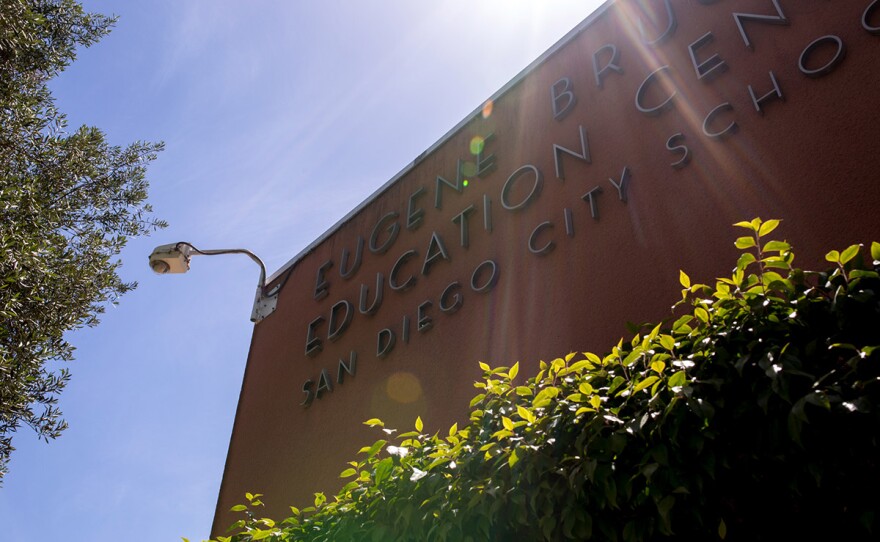Two local ballot measures could change the way San Diego Unified School District’s board members are elected and held accountable.
If it passes, Measure C would change school board elections to by-district. If Measure D is successful, the district’s school board would be able to remove board members who have been convicted of crimes or found to be neglecting their duties.
Measure C
Currently, elections for San Diego Unified use a hybrid model. During the primary, only voters from a candidate’s subdistrict can cast ballots. In the November general, the candidates compete in an at-large election, campaigning across all of San Diego Unifed’s five subdistricts.
Supporters of Measure C say at-large elections give disproportionate power to the city’s white majority and thus marginalize the votes of people of color in certain subdistricts. If passed, the measure would make the November general a by-district election starting in 2022.
Sharon Whitehurst-Payne, an incumbent board member running for re-election in Sub-District E, took second place in the 2016 primary but won in the general. She supports Measure C.
“My main reason for supporting it has to do with simplification,” she said. “It’s so complicated for folks to understand why we have district-only and citywide.”
RELATED: Six Candidates Vying For Seats On San Diego Unified School Board
But her opponent, LaWana Richmond, said Measure C would do more than simplify elections. It would remove financial barriers to campaigning and encourage more community members to run for office. She used the example of campaign mailers to show just how much more it costs to run in an at-large election.
“In the primary, I was able to get on a couple of them for a total of $1,000,” she said. “For the general election, just to get on one, they wanted $5,000”
Richmond said Measure C could help diversify the school board by encouraging more people to run.
RELATED: San Diego Unified Grappling With Significant Drop In Kindergarten Enrollment
But outgoing Board President John Lee Evans said the current system already promotes diversity while ensuring that candidates represent both the needs of their subdistricts as well as the overall district. Evans, who is voting against Measure C, said a by-district election could encourage board members from more affluent parts of the district to neglect the needs of schools serving more vulnerable student groups.
“When I was running I was accountable to the voters in the entire district as opposed to taking my subdistrict, getting the resources we need and not paying much attention to what’s going on in other areas,” he said. “That’s a potential detriment if it were to pass.”
Measure D
Evans does however support Measure D, which would change the San Diego City Charter to give the school board power to remove board members convicted of crimes while in office or if a judge determines they are in dereliction of their duty. But the measure couldn’t be used by a majority of the board to oust a political opponent in the minority.
“The measure does not allow for an unpopular board member to be removed for some small reason,” Evans said. “It has to be very major.”
Measure D was proposed by San Diego City Councilmembers Chris Cate and Vivian Moreno. If passed, board members whose behavior meets the criteria outlined in the city charter amendment could be removed with a three-fourths vote of the full board.
“If they felt for any reason that a school board member at any time is a derelict in their duties, there is a process by which they can remove that school board member absent a resignation or a recall, which we know is very costly and very difficult to get,” Cate said.
Both Measures C and D need a simple majority -- just more than 50% of the vote -- to pass.








